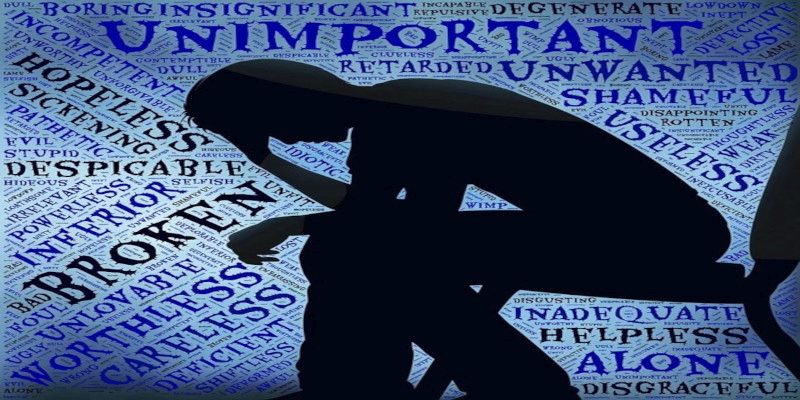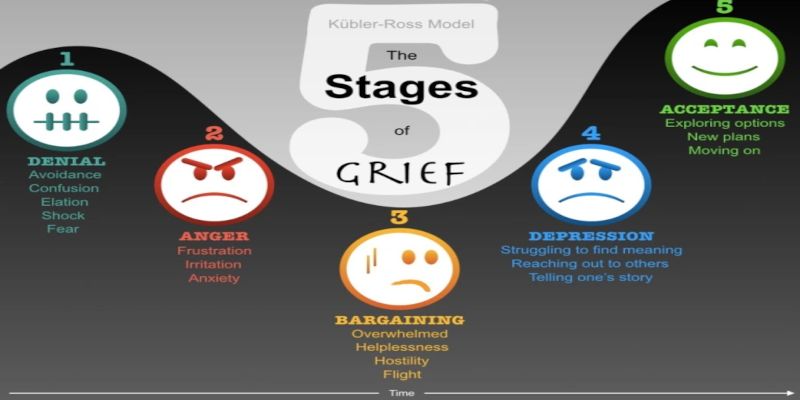Table of Contents
ToggleThe coronavirus lockdown is a hotly discussed topic these days. Not everyone might agree or like the decisions and precautions being taken right now to prevent the virus from spreading even more.
Nevertheless, what most of us can agree on is that we don’t like the government-induced lockdown, as it makes us feel caged and limits our freedom.
Yet, there are some useful things we can do to keep our sanity during these challenging and uncertain times.
Tips to keep sane while socially isolated
Focus on the positive things

The coronavirus has most people spooked quite a bit. Being isolated is mentally draining, which comes as no surprise since we’re social animals.
What you can do is take some time to appreciate the good and beautiful things that you have going on in your life at this very moment.
Just the simple fact that you are still sitting here while being capable of talking about how annoying this whole situation is should be considered a blessing in disguise. Not everyone is this fortunate.
Use your time at home to actively make your life better
Being stuck at home doesn’t mean you can’t use your time productively.
Use this time wisely to make some changes in your life that you know you have been putting off for far too long. Try doing some things that you normally wouldn’t do when you have other distractions going on in your daily life.
For example, use this opportunity to clean up your garden, to go for walks when you haven’t been exercising. To call a friend you haven’t heard in a long time, …
Take some time to relax

We are social animals and can only thrive with the appropriate amount of social interaction.
Being stuck at home is mentally draining to the point of questioning our sanity. We feel caged and worry about our own, our family, and our friends’ safety.
Everyone needs some downtime once in a while to recharge their batteries. That’s also one of the reasons why vacation days exist at work. Take some time to do the things you enjoy, or just kick back and relax if that’s up your alley. Watching a movie can help to take your mind off the more stressful things in life.
Only try to control the things you can manipulate
A good general rule in life is to only try to control the things that you can manipulate. Try not to worry about all the stuff that you can’t change anyway.
What you can moderate during these difficult times is taking the appropriate safety precautions, and using your common sense.
What you can’t command is how other people behave during this lockdown, and how long it is going to last.
Take your responsibility, and look out for your loved ones. The world would be a better and safer place if every individual would do this.
Physical exercise

You can’t have a healthy mind without having a healthy body. Not to mention that physical exercise helps to keep you sane during prolonged times of isolation.
Mental health and physical exercise go hand in hand. Oftentimes, we try to separate those two health aspects. But I think that they are two sides of the same coin. They belong, interact, and work together. Exerting yourself is vital to remain sane when times are hard.
That’s why it’s ideal to build a home gym during the lockdown.
It has been scientifically proven that physical exercise has a profound effect on the biochemistry of our brain, releasing endorphins, which are our ‘happiness’ hormones. Furthermore, exercising makes us live in the moment, and aids in taking our mind off the more stressful things in existence.
Social life

Like I said before, we are highly social beings. We need interactions with other people to feel fulfilled, and to be happy.
While there are currently restrictions placed on the amount of social interaction we can have, try to make it a priority to meet with the people close to you, like family and best friends. Keep in mind though to keep precautions for your own, and other people’s safety as well.
Change your mentality
You need to change your mentality to keep your sanity. Regardless if you’re isolated or not.
Instead of dreading the lockdown, try to appreciate the fact that you’re still alive and kicking. That’s a win in itself.
Take the time to appreciate all the fortunate things that are currently happening in your life. And remember, there can’t be good without bad. Both are a requirement for the existence of each other.
15 Signs you are isolating yourself
Feeling alienated

Feeling alienated from the rest of the world isn’t necessarily a sign that you’re isolating yourself, but it can be a possible indicator of feeling alone.
It’s hard, if not downright impossible to keep up with the world, and to feel understood when you’re not actively interacting with the universe, and telling those around you how you feel.
Needless to say, this can lead to feeling misunderstood, or not comprehended at all. That’s why we should train our social skills, and attempt to become effective communicators so that we’re able to convey our message effectively.
A lack of, or a lower frequency of social contact
One of the most obvious symptoms of social isolation is being void of, or a greatly decreased amount of social contact.
Unless you have a good reason such as being in the process of moving out or lying sick in bed, this is a clear giveaway that something’s wrong.
Fewer close friends
It’s somewhat normal that we maintain fewer close friends when moving through adulthood since we gain a lot more responsibilities such as working and taking care of our family that take up a lot of time. That leaves less free time that we could previously spend on interacting with our friends.
But it’s abnormal if we have no, or a drastically lower amount of close friends than we had beforehand.
Lower quality of relationships

If the quality of your relationships suffers, then that might be because you’re not spending enough time together, or because you’re less in tune with the feelings of the people close to you.
To maintain quality, you have to remain interested, and up to date with your peers. We all like attention, and our interest will naturally start to wane when someone doesn’t show any affection for us.
Relationship status
Not having a partner isn’t abnormal, especially if it’s a conscious choice. But if you’ve never had a romantic relationship, then that can be a reason for concern.
It’s a possible clue that you’re not putting yourself out there as much as you should be. And even though there are dating apps today, it’s much easier to attract a mate through real social interaction.
Less social participation
Perhaps you notice that you engage in less social participation than you did before. There will be times when life keeps us occupied, and we just can’t find the time to go to social events.
But if you’re never going to any social gatherings, then that’s a clear indicator that you’re alienating yourself from the world.
Inactivity

Inactivity can be a sign that you’re exhausted, but also that you’re suffering from a mental disorder such as depression, or that you’re isolating yourself.
We’re all inactive from time to time, but if you find yourself never leaving the house, and just lying on the couch or in bed all day, then something’s up. Humans are made to move around and exert themselves.
Depression and anxiety
Depression and anxiety can be the result, but also the cause, of separating yourself from others.
People suffering from mental disorders typically have less energy, and just don’t see the use of interacting with others, since they’ll regularly experience no positive sensations from speaking to others anymore.
Factor in that they’re suffering from insomnia regularly, and it’s not that hard to imagine why they don’t like talking with those around them any longer.
Insomnia
More and more people are suffering from insomnia these days. A lot of them undergo sleep disorders because they have poor sleep hygiene and habits that make it difficult to establish a proper biological rhythm, but some are suffering from an illness.
For me personally, I started experiencing insomnia while I was depressed, to the point of feeling so exhausted that I couldn’t leave the house at all. Sleep is essential to all of us, so invest in good sleep hygiene to replenish your energy.
Poor self-care

Poor self-care isn’t just off-putting, it’s also a potential signal of a more severe issue, such as separating yourself from society, and not feeling the need to take care of your appearance any longer.
But low and behold, our physical appearance matters, and to a great degree. Knowing that it makes sense to try to optimize what Mother Nature gave us by getting a decent haircut, being properly groomed, and having decent hygiene.
Aggressive and aggravated behavior
Aggression and being aggravated all the time can be the result of an underlying health issue, but also the reason for developing other problems.
Humans are social beings, and being isolated for prolonged periods can make us pessimistic, angry, aggressive, and even vengeful of the world and its inhabitants. That’s exactly why you should meet up with the people you love.
Few meaningful conversations
It’s true that a lot of conversations start, and mainly focus on small talk that aids in building trust and familiarity. Yet, we all strive for meaning, and so we desire some purposeful speeches with our conversational partners as well.
If you notice that you have few substantive talks with your peers, then that might be because that’s just the way you guys interact. But perhaps it’s because you don’t know what to talk about because you’ve been alone for too long, and aren’t in the loop any longer.
Life feels like a worry

It’s easy to become depressed and cynical when you’re not speaking with others, and the only thing left in your life is misery and your seemingly endless horde of problems.
When that’s the case, life might start to seem like a chore, and a worry to get over with. That’s not a healthy mental state to be in and is a cue that something’s wrong. It might be a sign of a mental illness, but also that you’ve been feeling alone.
Feeling like nobody understands you
It’s not uncommon to feel like nobody understands you at times. Perhaps you’re simply a unique individual with rare interests, which makes it harder to connect with your peers. But if you constantly feel this way, then you require better friends, or perhaps you feel this way because you haven’t had any social interaction for so long.
Again, seek out the companionship of like-minded individuals who get you, and understand your way of thinking.
Memory loss
Memory loss can be the result of being alone for so long that you experience cognitive deterioration. Perhaps that’s due to a lack of stimulation and external stimuli.
It can also be another cause such as depression, a stroke, or dementia.
Frequently Asked Questions (FAQ)
Why do I isolate myself from everyone?
There are multiple reasons why you might isolate yourself from everyone around you. These are the most common ones in my opinion:
You need to recharge your batteries

Everyone needs to recharge their batteries from time to time. And for some, this requires considerable downtime. Hence, it shouldn’t immediately be reason for concern, nor should it be seen as an issue if the isolation isn’t prolonged.
That’s especially true for introverts who regain their energy when they’re alone. Extroverts on the other hand recharge their vigor by interacting with others.
Don’t be ashamed to take some time for yourself if you feel like you need it. But make sure not to alienate yourself from your loved ones.
You need time to think

It’s normal that you search for a quiet place when you’re having issues, or feel like you need to ponder over some things.
When you’re alone, you can truly think freely due to being capable of concentrating because there are no external stimuli around to distract you.
So if you require some time to sort things out, then you’re most likely going to do so by searching out a silent spot.
You’re in survival mode
If you’re in a bad place mentally, then it can be an instinct to isolate yourself from others since you’re too exhausted to interact with others or to seek out help.
That’s not a viable long-term coping mechanism. It can even work for a short while, but I wouldn’t advise extended periods of separation to anyone because we need social interaction to feel fulfilled and useful.
You’re exhausted

When you’re exhausted is when you probably can’t deal with others, or noisy places, and try to reduce inputs as a result. And what better way to do this than being alone?
If you’re constantly feeling fatigued, then you need to search for the root of the concern. What you should always do is attempt to get at least 8 hours of uninterrupted sleep. Make sure to go to, and to get out of bed at the same time every day to establish proper sleep hygiene by your biological rhythm.
Needing a safe space
We all want a safe space to wind down from time to time, especially when we feel overwhelmed by emotions, or because we’re stressed out.
That safe haven is more than likely at home. A place that’s most familiar to us. And most of the time, we’re alone while coming home from work, when doing the chores, or relaxing.
Feeling unworthy of support

Some folks feel so unworthy of support because they’re insecure, or feel like they’re a failure. They’re willing to go to great lengths to isolate themselves to “save themselves the shame”.
Everyone requires and is worthy of love. And if you truly feel like you’re undeserving of assistance, then you should take the time to put your business in order so that you feel like you’re useful and someone of worth.
Not wanting anyone to see us at our worst
It’s only normal that we want others to see us at our best, rather than at our worst. That’s what we do in real life, but also on social media platforms such as Facebook and Instagram.
Yet, we’re only human. And that means that we’re not perfect, and will feel down from time to time. If we’re having some psychological issues, then we may be isolating ourselves to prevent others from seeing our concerns with their bare eyes.
Feeling overwhelmed

Our senses can get overwhelmed. And we’re living stressful lives these days without many opportunities to truly turn our brains “off”.
Our sympathetic nervous system is active when we’re stressed, while our parasympathetic is active when we’re relaxed. But the problem is that the majority of us get “stuck” in a stressed-out state, which means that the sympathetic nervous system is overactive since we’re stressed out most of the time. That isn’t good since it’s highly taxing on our bodies.
Relaxing activities such as deep breathing exercises, mindfulness, gardening, and exercising can aid in resolving this and guide our bodies into their natural state of the parasympathetic nervous system once more.
Feeling disconnected from the rest of the world
We all feel alienated from those around us, and from life itself occasionally. Life is weird, and this universe is something we probably will never fully understand.
As a result, we might feel like it’s not worth talking to others about our feelings since “nobody will understand us anyway”. Still, there’s always someone willing to listen, and who thinks on the same wavelength as us. That’s why you should search, and find like-minded individuals.
Not knowing how to talk about your problems

It’s hard to talk about our problems, particularly when that’s something that we don’t like doing, and doesn’t come naturally to us as a result.
But it’s known that talking about what’s troubling us aids in reducing tension because we feel like some weight falls off our shoulders, and by increasing our resilience to stress. So search out the assistance of your best friends and family when something’s upsetting your mind.
Might have a problem holding a conversation
Not everyone has the needed social skills to hold a decent conversation. Or perhaps it’s because they’re concentrating, or so stressed out that they can’t form coherent sentences anymore.
When we’re aware of this uncomfortable fact, we might refrain from speaking to others as a consequence. But nobody ever improved their abilities just by doing nothing. So get out there and talk to others! You will find people who like you for who you truly are.
Not getting pleasure from interacting with others anymore
You may experience absolutely no pleasure when conversing with others when you’re suffering from certain mental disorders such as depression for instance.
If that’s the case, then the question becomes, “Why would I speak with others or get out of the house when I gain nothing constructive from it anyway?”
And it’s a great question because a lot of what we do is motivated by what we deem to be positive occurrences, while simultaneously trying to avoid perceived negative events.
Fearing judgment

Despite telling ourselves and others that we should be ourselves while paying no mind to what others think of us, we can’t get around the simple fact that the opinion of others matters to us.
Still, the only view we should value is that of those who love, and want the best for us such as our family and good friends. Not of the folks that don’t want to see us thrive.
Everyone’s going to judge us. So the sooner you get over your fear of being evaluated, the quicker you can move on with your own life while remaining true to yourself.
Not wanting to disappoint those around us
Those we respect are typically those we want to impress. We want to show our best side to the people around us, which isn’t all that surprising.
But we may isolate ourselves when we feel as if we’re currently failing at life, even though that might not even be true. Most of our suffering takes place in our imagination, and how much value we attribute to the concern at hand. And that’s true for every one of us.
Not wanting to fake behavior

Society regularly has certain expectations of us that we have to uphold. A lot of folks expect us to smile and act cheerful, even when feeling bad. That’s annoying when we want to be honest, and are unwilling to fake certain behaviors.
But if we are around environments where this is the norm, then it’s likely that we will isolate ourselves to prevent having to expend more energy than needed and having to pretend.
Depression

As someone who has experienced depression firsthand, I know all too well that it can suck the life right out of you while making you unwilling to converse with others.
That can be for a variety of reasons ranging from experiencing no positive emotions, to feeling exhausted, guilty, useless, and having no goals to pursue anymore.
Fortunately, depression isn’t taboo anymore. It’s treatable, and even curable in most instances. That is if you’re willing to put in the time and effort.
Burnout
According to a study performed by Zippia, 89% of workers have experienced burnout within the past year.
That’s a worrying statistic and an awfully large amount of people are undergoing troubles at their work. Something is going wrong at our jobs that makes the employees feel this type of way.
You should try to resolve the problems that are troubling you. But if you notice that’s not in the cards, then there’s unfortunately only one option left to exercise, and that’s to leave the company for another career.
Anxiety disorders and phobias

When we’re anxious about something, or downright fearful, then it’s likely that we’re going to avoid those situations to prevent feeling these uncomfortable sensations.
Social anxiety and agoraphobia are two examples wherein afflicted individuals are going to avoid gatherings and are more likely to stay at home without anyone around. That’s where they feel safe, and free of anxiety-provoking stimuli.
Being ashamed
It’s normal to feel ashamed from time to time. But it can prevent us from leaving the home when taken to the extremes. Those who are continuously embarrassed of themselves are more likely to distance themselves from their peers.
But once again, this isn’t a solution. Tackling the issue head-on is your best bet to get rid of the cause entirely.
Afraid of social rejection
Humans are social beings. As such, we’re acutely aware of our standing in the pecking order, or the social hierarchy, so to speak.
That can be both good and bad depending on the circumstances. It’s beneficial since it allows us to perform better by connecting with others on a deeper level. But it can be highly detrimental because it can make us so socially anxious that we separate ourselves from the world entirely.
Post-traumatic stress disorder or other trauma

Attribute to http://traumadissociation.com license: CC BY-SA-4.0 Original research: Characteristics and Treatment Preferences of People with Symptoms of Posttraumatic Stress Disorder: An Internet Survey. Spence J, Titov N, Solley K, Dear BF, Johnston L, Wootton B, et al. (2011). PLoS ONE 6(7): e21864. doi:10.1371/journal.pone.0021864. Trauma can make us unable to function properly. When we feel so many antagonistic emotions all at once and in such a sharp manner, then we’re likely to isolate ourselves from even those we care deeply about.
It’s important to talk with both healthcare professionals and friends to get better by processing those intense emotions.
Doom thinking
Those suffering from doom thinking are probably going to experience more negative emotions than those who don’t. Yet, we’re more likely to remember the negative events than the positive ones due to the negativity bias. That means we’re probably going to rate events as being more pessimistic than they truly are.
But it’s hard to put yourself out there when you see the worst in every situation. And alienating yourself from everyone might seem like your only way out.
Grieving

We’re apt to seek some downtime when we’re dealing with a lot of emotional trauma because we’re grieving due to the death of a loved one for example.
That’s because those sharp feelings can overwhelm our senses. And there’s only so much attention and energy we have at our disposal. If most of our vigor is aimed at the grieving process, then we’re probably too exhausted to deal with other people.
Being emotionally distressed
Being emotionally distressed because of the death of a loved one, financial troubles, or any other troubling concern can overpower our willingness to seek out social interaction.
But we can’t dwell on the past forever. There comes a time when we need to move on with our lives to keep our existence manageable.
Moving to a new location
One of the best possible reasons for not seeing your peers for a short while is moving to a new location.
But even better than alienating yourself is asking your friends to help you move out. This way, you’ll never lose them out of sight while having an easier time getting the job done. A win-win situation!
Poor relationships

I’m all for cutting the toxic folks out of your life since we don’t need that kind of negativity in our existence. It’s not like they add any value anyway.
But it’s better to tell them straight up that you don’t want any contact with them anymore rather than having to isolate yourself.
You have the right, and even the responsibility to do what’s good for you. And if that means discontinuing certain kinships, so be it.
How to overcome social isolation?
Exercise

Exercising not only can make us feel better, but it’s also another incentive to get out of the house. This in itself is already a win, but it’s even better when connecting with others to work out together.
Joining a gym, or going for walks and runs with friends, is a great way to get in shape while getting some much-needed social interaction at the same time.
Join a community
Joining a community by getting a gym membership, or volunteering at a charity organization can create a sense of unity while being another reason to leave the house more frequently.
Even getting together with your coworkers for a couple of drinks can serve a purpose and can aid in winding down after a stressful workweek.
Volunteer to help others

Volunteering to help others is fulfilling since you’re assisting those in need. And while we can’t help everyone out there, there’s always someone we can aid.
Try supporting the people close to you, but don’t forget about the strangers you meet along the way either. Chances are, they can use a helping hand as well, seeing as everyone has their struggles.
Create a strong support network
Having a strong support network can back you up during difficult times, but can also create opportunities to go out together and have some fun.
Life’s simply better when we have someone, or multiple people we care about, to share it with. Try to seek out like-minded individuals with whom you share interests so that you have something to talk about.
Take action
This might seem obvious, but just making plans, no matter how good they might be, will not teach you how to overcome social isolation. We need to put our words into practice to gain more experience and improve.
Even when things don’t pan out as previously planned, it’s still a chance to acquire new skills and knowledge, even if just by figuring out what doesn’t work.
Engage in social activities

Going to social events such as parties, the theater, or just grabbing a drink at the bar can be opportunities to meet new people, but also to unite with your current friends.
Sure, not everyone needs the same amount of socializing. But it’s still vital that we talk with others to stay sane and to have a meaningful existence.
Practice activities that you enjoy
Sometimes, things can be as easy as doing more things you enjoy instead of forcing you to practice activities that you dislike all the time.
We all need to do some things we don’t like from time to time, that’s simply how life works. But if we’re constantly having to engage in actions we disfavor, then it’s only logical that we’re not going to be motivated to carry out these things.
Change your environment
We require a stimulating environment to have a motivator to interact with our surroundings. If you’re constantly bored or feel like life’s too stagnant, then that’s a clear indicator that you need to change some things.
Try putting yourself outside your comfort zone. Meet some new people, practice a new activity or sport, join a gym, learn a new skill or trait, the possibilities are endless.
Make a plan

Making plans can “force” you to go outside because you don’t want to let your friends down, and because you feel like you have to go because you confirmed to go out together.
Of course, that’s still no guarantee you’re going to go through with these plans, but they can be good inducements to quit isolating yourself.
Interact with your neighbors
You don’t always have to go to distant places to leave the house. It can be as convenient as interacting with your neighbors by just going outside, or crossing the street.
The fact that we’re more likely to assist those we like, and feel emotionally connected to, is a nice bonus as well!
Make phone calls and send emails
Making phone calls and sending emails to our peers is an accessible way to ease into interacting with those around us.
It’s also a convenient tool to make arrangements to go out with friends and to stay in touch with those living far away.
Adopt a pet

Adopting a pet means you’re responsible for its well-being. Naturally, we need to go to the store to buy food for our little companion, and to the veterinary when it’s sick.
It’s also proven that owning a pet can help reduce loneliness, and improve our mood. I can attest to this fact since my cat enriched my life.
Practice self-care
Caring for yourself is important, and it’s not just limited to having decent hygiene. It also means knowing when to take a rest, that you should exercise, and when to leave the house because you’ve been lacking social interaction.
Speaking with our peers is part of keeping ourselves in a good place mentally. And sometimes, that means you have to force yourself to leave the house to get the chance to talk with others.
Talk to a healthcare professional

Talking to a healthcare professional about your struggles, and why you feel unable to leave the house, can help to solve the issues that are bothering you. And who knows, it can even make you look forward to speaking to others once more.
At the very least, it can help reduce tension, and make you understand what the difficulty is, and what actions you should take to resolve them.
Join a support group
Joining a support group can aid to feel understood, and can be another reason to go out.
There’s no shame in needing the assistance of others. We’re imperfect, and life gets harsh at times. That’s when we require a good support network to pull us through in those times of need.
Who’s most at risk for social isolation?
Older people

People’s social circle typically grows smaller as they age due to a variety of different reasons such as retirement, the loss of older friends and family, and children leaving the house.
The elderly regularly have some physical issues that prevent them from leaving the house as much as they would like, or as they could when they were younger.
Individuals with impairments
Life isn’t fair, and no matter how many laws are in place to prevent discrimination, those suffering from disabilities will probably experience discrimination at some point during their existence. Hence, they’re more likely to become socially isolated.
Not only that, people with impairments can have a tough time finding available transportation adjusted to their personal needs. Especially those who are dependent on wheelchairs for their transportation. All these issues can severely hamper their capacity to interact and socialize with their peers in the flesh.
Individuals living in distant locations

Those living in distant locations such as pilots, military service members, and people who are away from home for prolonged periods have more trouble socializing with their loved ones. As a result, they can feel, and even become, split from their family and friends.
Those who live in rural areas can have a harder time establishing a decent-sized social circle since there are fewer people around to pick from.
People suffering from immunodeficiency
Many individuals suffering from immunodeficiency feel like they’re limited in their capacity to experience a fulfilling social life. That’s particularly true now that we have stopped wearing masks and other health precautions in most places related to COVID-19.
This makes it harder for them to take part in social events without putting their well-being on the line, which can prevent them from going out in public.
Marginalized groups

We tend to categorize things by putting them into groups. And this is no different concerning people. But that can make certain uncommon, or unpopular groups experience discrimination and stigma.
In some social circles shutting them out can result in a smaller amount of social relationships since their social pool becomes smaller.
Can isolation cause insanity?
Yes, isolation can cause insanity. A research team at McGill found out that people suffer from anxiety, a distorted perception of time, and even hallucinations after just a few hours of isolation.
There have also been case studies of prisoners who have been kept in solitary confinement that suggest that a scarcity of human interaction causes cognitive impairment such as poor memory, and a decreased ability to concentrate.
Bottom line

Not everything in our existence is in our control, nor is it always the way we want it to.
But there’s almost always something we can do to improve the situation, and consequently, our lives. We shouldn’t underestimate how powerful something as simple as not making an already poor situation worse can be.
Try to look out for yourself and your loved ones by taking care of your physical, but also your mental health. Remain active, sleep plenty, and make it a point to remain in contact with those you hold dear.































